- Home
- Tony Parsons
Girl On Fire_DC Max Wolfe Page 4
Girl On Fire_DC Max Wolfe Read online
Page 4
He hung his head at the memory.
I sat down next to him on that miserable little bed.
And I stared at him hard with that inbred, hard-earned cop hunger for guilt. I wanted to see it for myself. I needed to see if I was kidding myself that this man was a victim. I remembered Alice Stone, her body half in the street and half on the pavement, and I felt my heart harden. Maybe Edie Wren was right.
He must have known!
Except I could not believe it. The first time I saw him he looked like a victim. And, whatever his bastard sons had done, Ahmed Khan looked like a victim to me.
But if he had not known about his sons in the past, then he sure as hell knew now.
‘Why am I here?’
I felt pity for the man. But it was a stupid question.
‘One of your sons killed one of my colleagues. He would have killed all of us if he had the chance. Your house is full of drones just like the one that brought down that Air Ambulance helicopter over Lake Meadows shopping centre in West London.’ I leaned closer to him and almost whispered in his ear. ‘Do you really need to ask me why you are here?’
He closed his eyes and rocked.
‘My sons,’ he said. ‘They said things – but they were the things that all the young men say.’
‘Like what?’
‘They said – We destroy their buildings but they destroy our countries, Papa. Just talk. Just the talk of all the young men. But I told them – This is your country. And I never dreamed that they would be the ones … that helicopter … all those people … children …’
He squeezed his eyes tight to make the world go away.
I watched him fight for some control and then the shock was subsiding and the grief was kicking in. I stood up and looked down at him.
‘So exactly how much did you know, Mr Khan?’
He shook his head. His eyes were still closed.
‘Did you know your sons brought that helicopter down?’
‘No!’
‘Your house was full of drones. What did you think they were doing with them?’
‘A business, they said. To make a business, Papa. Booming drone industry. Next big thing, Papa. Many opportunities, Papa.’
‘And you believed them?’
‘Yes.’
‘And did they have anyone helping them with this new business? Anyone providing the cash? Anyone advising them? Anyone else you saw associated with what they were doing?’
‘No.’
He was too certain.
‘Your son – Asad – left the house dressed in a woman’s robes. What did you think, Mr Khan – that he was off for another day at the office?’
He looked up at me now.
‘Asad knew they were watching him. Your people. The police. The intelligence services. Whoever does the watching for you. They had stopped watching my sons some months after they came back from Syria but recently they had started again. And Asad knew. He knew they were watching and he said it made it difficult for doing business. So he was hiding from the ones who were watching.’
‘The intelligence services had started monitoring your sons again because they were suspected of planning fresh terrorist atrocities. They should never have stopped watching them after they had returned from Syria.’
‘But they were just aid workers!’
I couldn’t work out if he believed this crap or not.
‘Your sons were not aid workers in Syria. They were fighters for jihad.’
Now he looked at me and his dark eyes were full of pain.
‘They were good boys. They were helping the poor. The victims of war. The children.’
I banged my fist against the wall and watched him flinch.
‘Every murdering bastard I ever met was a good boy who was nice to his dear old mum and wanted world peace. Every gang member. Every thug. And certainly every terrorist. You see the truth at last, don’t you?’
‘I saw my son’s body in the street,’ he said, and his eyes closed at the memory.
The son that had killed DS Stone. The son that Jackson had slotted.
Whatever human sympathy I felt for the old man did not extend to any of his sons.
‘Did you know he had that firearm?’
‘No.’
‘Did your sons have other weapons?’
‘No. I don’t know. No.’
I leaned towards him and lowered my voice. Because there was something that worried me more than anything else.
‘What about the grenades?’ I said. ‘Your sons bought two grenades. Two Croatian grenades. Where are they now?’
He shook his head. ‘I have seen no grenades. No weapons. Are my wife and granddaughter safe? Is my other son safe?’
I realised he meant Adnan. He had not seen Adnan dead in the basement. And nobody had told him.
I could still see Ray Vann raising his Sig Sauer. I could still hear the single shot from a semi-automatic assault rifle fired in a confined space. I could see Adnan Khan being put down.
‘Both your sons died at the scene. Adnan died inside the house after you left with your wife and granddaughter.’
‘Did you see him die?’
I stared at him.
‘No,’ I said.
His shoulders shook as he wept and I wondered at his naivety.
But I looked at the sky-blue ribbon on his London transport uniform, the sky-blue ribbon that so many Londoners felt the need to wear, and I had no doubt about his innocence.
‘Where will they take me?’ he said, rubbing his eyes with the palms of his hands.
‘They’re going to take you to Paddington Green Police Station.’ A pause. ‘It’s where the Metropolitan Police interrogate terrorist suspects.’
He looked as though he had been kicked in the stomach.
Then he was silent for a long while.
I could hear voices outside the cell. The heavy mob had arrived.
And then he spoke, and his words came out in a torrent.
‘I tried hard to be accepted in this country,’ he said. ‘When I came here in 1976 to marry my wife, my colleagues didn’t like me at first. Pakis out, they told me. But then they liked me. Or at least they accepted me. Because I would work on Sundays. And I would work at Christmas. I would work on all the days they wanted to be with their families. And then they accepted me. And they called me Arnold.’
‘The other bus drivers called you Arnold?’
‘English joke. Because I do not look like an Arnold. And because my name sounded strange to them. But it was hard and it took many years. I tried to explain all of this to my sons. But they did not listen to me. This is your country now, I said. But, Papa, they said, a man’s faith is more important than a man’s country. Because all countries belong to God. When can I go home? Can I go home after Paddington Green?’
‘They are going to take your house apart,’ I said. ‘The floors, the ceiling, the walls. They are going to rip it to pieces.’
‘To punish us?’
‘To search for evidence and weapons. To find those grenades I asked you about. To find out who else they knew and what else they were planning. Not to punish you, Mr Khan. But they’re doing it now. You will not be going home for a while.’
And if someone decides to tie you to the sins of your sons, I thought, you might never be going home.
There were voices outside and then the sound of the key in the lock.
The door opened and a huge man with a mop of white-blond hair filled the doorway. I had first known him as DCI Flashman, a Homicide detective at New Scotland Yard. Now he had to be at Counter Terrorism.
He gave an elaborate sigh at the sight of me.
‘Step outside, Wolfe,’ he said.
Khan seemed to have slipped back into his trance. The custody sergeant stared at him with distaste as he locked the door behind me.
Flashman’s bulk dominated the corridor.
There were three people with him. Two uniformed sergeants to do the heavy lifting and a wo
man – older, bookish, John Lennon specs – who looked like some kind of lecturer or academic. She had the air of the campus about her.
Except I knew she wasn’t an academic.
Flashman made no attempt to introduce her and I didn’t ask. Because I knew exactly where the woman was from.
And I couldn’t keep my mouth shut. If DS Alice Stone was still alive, I would have kept my mouth shut. But she was in a mortuary and they still hadn’t been able to reach her next of kin. Her family still didn’t know she was dead. Her husband still didn’t know she was never coming home again.
I looked at the woman who needed no introduction.
‘Why the hell weren’t you watching them?’ I said.
Flashman’s face clouded.
‘Wolfe.’
‘You watched the Khan brothers when they came back from Syria,’ I said. ‘But then you stopped.’ I shook my head. ‘And you only started again when West End Central told you they’d been shopping for hand grenades.’
Flashman moved his large bulk towards me, a big man who was accustomed to getting his way.
The woman from MI5 held up a hand to stop him.
‘Because we can’t watch all of them, DC Wolfe,’ she said in a voice full of reason. ‘Because there are too many of them, especially now that so many are coming home. Because our resources are not limitless. There are a few thousand of them and there are a few thousand of us. These men were on our radar but not under the microscope. Surveillance is highly labour-intensive and we simply do not have the manpower or the resources to put every returnee under twenty-four-hour surveillance for the rest of their lives.’ She looked at Flashman. ‘What is it now?’
‘Thirty officers per subject for twenty-four-hour surveillance,’ he said. ‘Plus multiple vehicles, including at least a couple of motorbikes.’ He watched me under his belligerent, hooded eyes. ‘And that’s only if they never have a day off for weekends and Christmas.’
‘I know that’s no consolation after what happened today,’ she said. ‘And I am truly sorry for the loss of your colleague.’
I nodded.
And now it was Flashman who couldn’t keep his mouth shut.
‘You’re right out of order, Wolfe. You shouldn’t be talking to a CTC suspect. And you shouldn’t be opening your disrespectful cakehole to us as if you’re running this show.’
‘We gave them to you,’ I told him. ‘Information from my CI about the weapons dealer handed you the Khan brothers after they bought two grenades from him.’
He sneered at me.
‘That was a false lead.’
‘What?’
I was genuinely shocked.
‘The grenades. They didn’t buy any grenades. We have had a Specialist Search Team in Borodino Street tearing that house apart. And guess what, Wolfe? No grenades. All we found in the way of weapons was that old assault rifle that killed DS Stone. Your information was wrong. And the Khans were edging back on our radar anyway, before we got the nod from you. So don’t pat yourself on the back too hard.’
Flashman nodded to the custody sergeant and he unlocked the door. The two big coppers stood in the open doorway for a moment, considering Ahmed ‘Arnold’ Khan with real loathing. Then they went inside, roughly cuffed his hands behind his back and brought him out. Flashman narrowed his eyes at the sky-blue ribbon on Ahmed Khan’s London Transport uniform, then nodded briefly and they took Khan away.
Flashman turned to me.
‘Now why don’t you go back up to the top floor and get to work on some domestic that went a bit too far?’
‘And why don’t you catch some real terrorists?’ I took a step towards him. ‘Where were you when we were on Borodino Street, Flashman? Washing your hair?’
He made a move towards me but the custody sergeant stepped between us.
I shook my head at Flashman, nodded to the woman from MI5 and walked to the lift.
Edie was already back in MIR-1.
‘The gang’s all here,’ she said. ‘A social worker and a translator. The social worker is for the girl – that Layla, she’s such a sweet kid – and the translator is for the old lady, Mrs Khan, who apparently only speaks Urdu.’
‘But her husband told me they’ve been here since the Seventies.’
And hadn’t she spoken to me in English in the kitchen, if only to ask me not to kill her?
Edie grinned. ‘Early days then. Give her time. She’ll get the hang of it yet. Maybe she only speaks English when it suits her. What’s the drill now?’
‘They will eventually cut Mrs Khan loose but the local authority will almost certainly take the girl into temporary care,’ I said. ‘Which could last forever, or at least until she’s eighteen.’
Edie’s smile fell away.
‘The poor little cow. Where does Mrs Khan go?’
‘Anywhere she likes.’ I nodded at the TV. ‘But not home.’
The Specialist Search Team looked as though they had begun to dismantle the property in Borodino Street. Floorboards and piles of bricks were stacking up in the front garden. And I saw that Flashman was right. If those two grenades had been inside, our people would surely have found them by now.
‘Excuse me?’
A tall young black woman hovered uncertainly in the doorway of MIR-1.
‘I’m looking for DCI Whitestone,’ she said. ‘I’m TDC Joy Adams.’
Edie and I looked at each other. Our team had been undermanned since the death of our colleague Billy Greene. This must be Billy’s replacement.
‘DCI Whitestone’s on leave,’ I said.
‘Leave? What – like a holiday?’
Her accent was South London mixed with a distant touch of Jamaica.
‘Yes, exactly like a holiday. Even Homicide cops get some leave every once in a while.’
Trainee Detective Constable Joy Adams nodded and looked around the deserted MIR-1. She was wearing a black trouser suit and her hair was in tight cornrow braids that were pulled into a short ponytail at the back. I could tell she had thought carefully about how she should look on her first day in Homicide and Serious Crime Command.
And I could also tell this large empty office was not what she had dreamed about during her training at Hendon.
‘It’s usually a lot livelier than this,’ Edie said.
TDC Adams nodded, her eyes drifting across the empty workstations to the scene in Borodino Street on the TV screen. The blacked-out silhouette was still in the bottom right-hand corner.
‘That isn’t our investigation?’ she asked.
‘No,’ Edie said. ‘It’s somebody else’s job. But don’t worry – there’s always another murder along soon.’
But TDC Adams was ready to go to work now. The noise drifting up from the street was getting louder. The crowd was growing.
‘Come here,’ I said, and she followed me to the window. ‘You see all those people out there?’ I said. ‘They’re too close to our front door. And there are too many of them. And they could get angry. And that would be bad news for everyone.’
Adams’ bright eyes were waiting.
‘So you get as many uniformed officers as you can find and go out there,’ I told her. ‘You’re in charge, not the uniforms. But you stick with them. Don’t get separated, OK? Be polite but firm with the people, but you move them back to the end of the street.’
‘Burlington Gardens?’
‘No, the other end. Conduit Street. I don’t want them milling around in Piccadilly, wandering around the Ritz. Then you set up a perimeter so that nobody enters Savile Row who doesn’t need to be here. Can you do all that?’
‘Yes, sir.’
She headed for the door.
I stayed at the window and a few minutes later TDC Joy Adams appeared down on the street accompanied by half a dozen uniforms. I watched as – gently but firmly – she ushered the crowd to the far end of the street. She was going to do all right.
‘Max,’ Edie said. ‘Look.’
She was staring at the TV
where the blacked-out silhouette had finally been replaced by the face of DS Alice Stone.
It was some kind of official portrait but Alice Stone still was smiling that big, good smile that she had.
I felt something choke up inside me.
‘Looks like they reached her next of kin,’ Edie said.
6
It was the end of the long day and Fred’s gym was almost empty now.
Down on a yoga mat, a woman in her fifties who looked maybe thirty silently moved and breathed her way through Surya Namaskara, the Sun Salutation, bending and unfolding and stretching her body so that the series of graceful asanas looked like just one long fluid movement. One of Fred’s shaven-headed regulars in a frayed London Marathon T-shirt wearily banged the heavy bag with eighteen-ounce Lonsdale gloves. Someone turned off the treadmill, caught their breath and headed for the showers. And Fred stood before me, his long silver hair pulled up in a topknot, looking like a pirate who was about to go for a serious run.
Toots and the Maytals were on the sound system singing of young Trenchtown rude boys fifty years in the grave and up on the giant TV screen the first fight between Micky Ward and Arturo Gatti was playing with the sound turned off.
Fred counted out the reps of ten as I rose from a bench on one leg, held it, and sat down again still using the same leg. We did it until my quad muscles were burning.
With my knee still healing, my exercise regime at Fred’s was all about my quads – squats, lunges, step-ups and, most of all, the torture of standing up and sitting down using just one leg. Whenever I felt like I couldn’t go on, when my leg muscles were stiff with lactic acid, when my quads were alive with pain, I looked up at Micky Ward and Arturo Gatti knocking lumps out of each other.
And I carried on.
And then Jackson Rose walked into the gym.
He nodded at us as Fred strapped some ankle weights on me and counted out five reps of ten as I forced out fifty burpies.
The regular in the London Marathon T-shirt walked off to the lockers and Jackson stood before the heavy bag, contemplating it for a moment before stepping back, bending his body so that his torso was at right angles to the ground and then kicking it where the head of a very tall man would be.

 Long Gone the Corroboree
Long Gone the Corroboree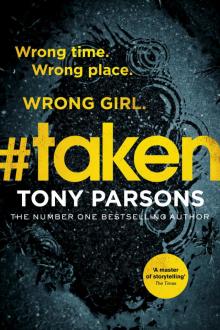 #taken
#taken The Family Way
The Family Way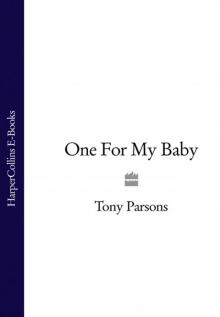 One For My Baby
One For My Baby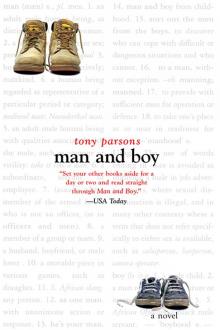 Man and Boy
Man and Boy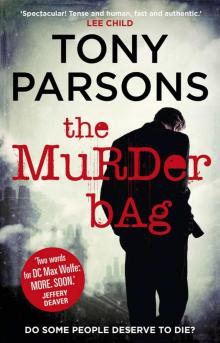 The Murder Bag
The Murder Bag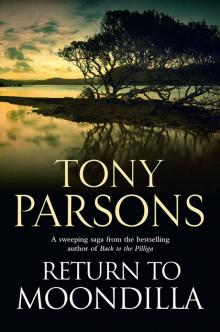 Return to Moondilla
Return to Moondilla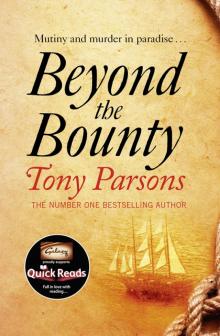 Beyond the Bounty
Beyond the Bounty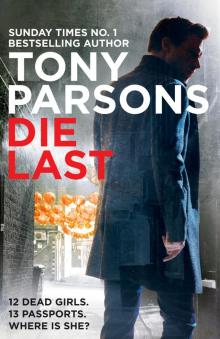 Die Last
Die Last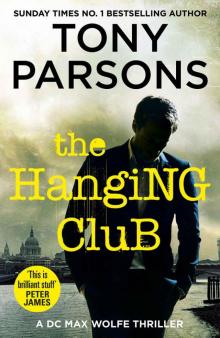 The Hanging Club (DC Max Wolfe)
The Hanging Club (DC Max Wolfe)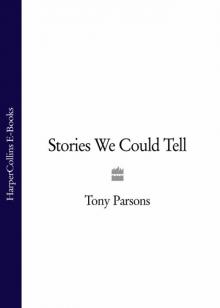 Stories We Could Tell
Stories We Could Tell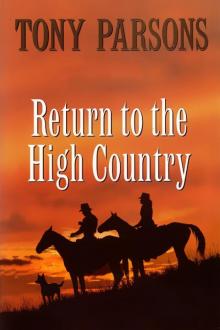 Return to the High Country
Return to the High Country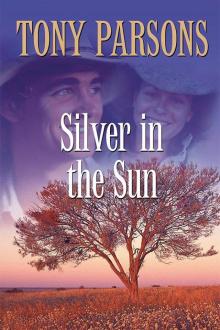 Silver in the Sun
Silver in the Sun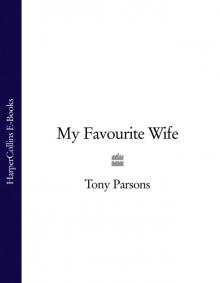 My Favourite Wife
My Favourite Wife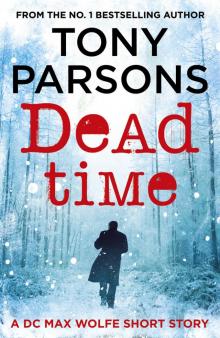 Dead Time
Dead Time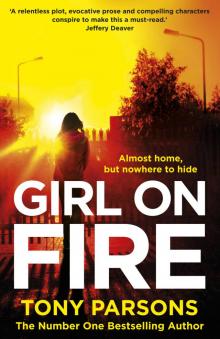 Girl On Fire
Girl On Fire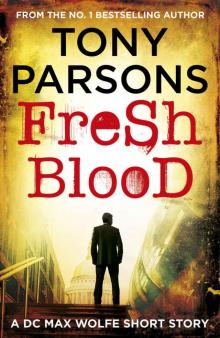 Max Wolfe 02.5 - Fresh Blood
Max Wolfe 02.5 - Fresh Blood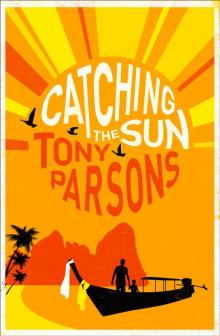 Catching the Sun
Catching the Sun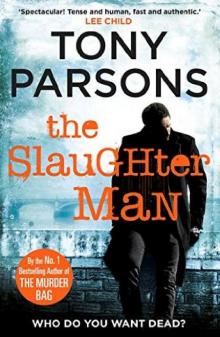 The Slaughter Man
The Slaughter Man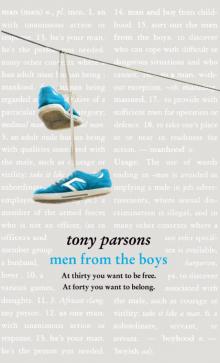 Men from the Boys
Men from the Boys Man and Wife
Man and Wife Valley of the White Gold
Valley of the White Gold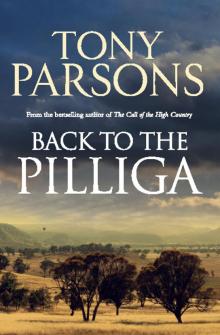 Back to the Pilliga
Back to the Pilliga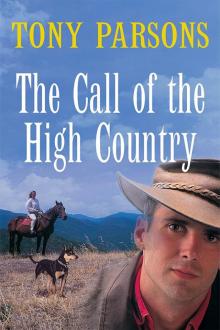 The Call of the High Country
The Call of the High Country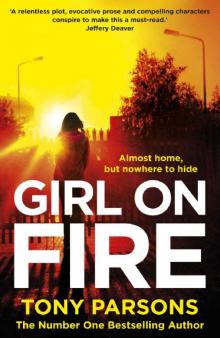 Girl On Fire_DC Max Wolfe
Girl On Fire_DC Max Wolfe